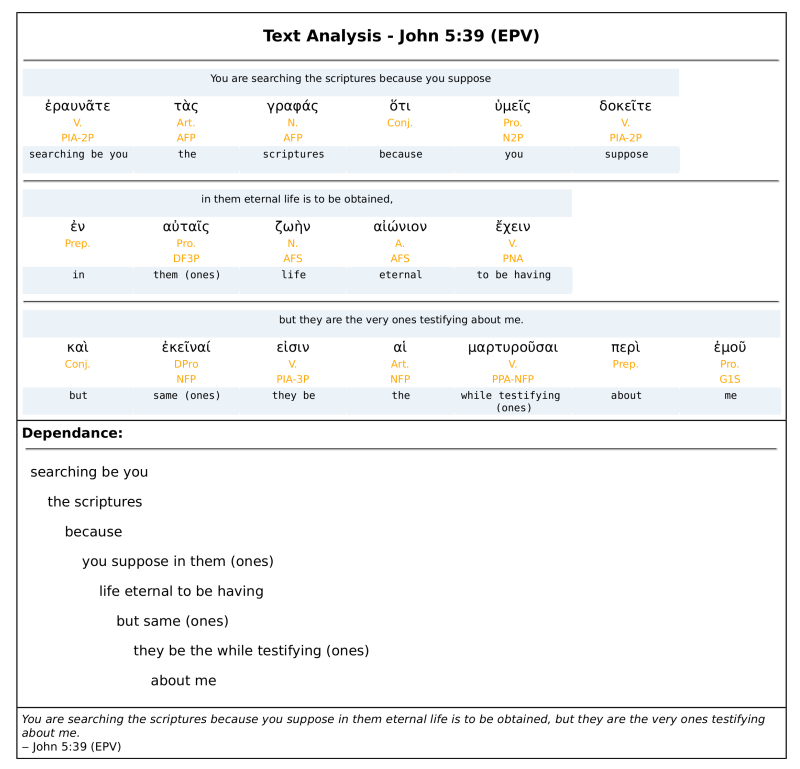I understand that the Greek word (ἐραυνᾶτε) for "search" in John 5:39 (ESV) can be taken as imperative or indicative. In Greek, is there any possibility that both can be meant here, or only one has to be taken as the most probable?
John 5:39 (ESV):
You search the Scriptures because you think that in them you have eternal life; and it is they that bear witness about me,
I read on page 274 of The Fourth Gospel by Edwyn Clement Hoskyns and edited by Francis Noel Davey the following comment:
an imperative lurks behind the indicative, for the Saying encourages the steady investigation of the Scriptures.
Here is the context of the comment above from pages 273-274:
vv. 37, 38 do not, therefore, as Chrysostom supposed, refer to the voice from heaven at the Baptism of Jesus (Mark i. II and parallels), but to the Old Testament Scriptures, and by implication to such passages as Ps. ii. 7, which forms the basis of the Evangelical narrative of the Baptism. The Greek verb in v. 39 translated search reproduces the Hebrew word darash: 'It is necessary to examine every passage containing the word "saying"' (Akiba, Sifre Num. 2), 'Thou knowest how to read, but not how to search' (Jerusalem Talmud Berakhoth 4d); it is frequently used by Philo for the investigation of the meaning of scripture (for illustrations see Schlatter, D.E.J.). The verb here may be an indicative, Ye search the scriptures (R.V.), or an imperative, Search the scriptures (A.V., R.V. mg.; see Field, Notes on the Translation of the New Testament, pp. 88 sqq.). Chrysostom and most of the Fathers took it as an imperative, but the argument, as Cyril saw, requires the indicative, 'We will then not read it as an imperative.' And yet, when this is said, an imperative lurks behind the indicative, for the Saying encourages the steady investigation of the Scriptures. What is discouraged, and indeed condemned, is every form of Old Testament study that proceeds on the assumption that there is such a thing as 'The Religion of the Old Testament' or 'The Religion of the Prophets of Israel'. For the Torah in the Rabbinic Literature as the source of salvation and life, indeed as itself the Tree of Life, see Strack-Billerbeck on Rom. iii. I: 'This is the book of the commandments of God and the Law that endureth for ever. All they that hold it fast are appointed to life, but such as leave it shall die' (I Baruch iv. 1, 2); 'If food, which is your life but for an hour, requires a blessing before and after it be eaten, how much more does the Torah, in which lies the world that is to be, require a blessing' (Rabbi Ishmael, c. 135, quoted by Strack-Billerbeck); 'He who has gained for himself words of the Law has gained for himself the life in the world to come (Aboth ii. 7).
